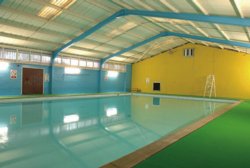Solving condensation issues puts swimming back on the agenda at Kingswood Centre



More refrigerant bans possible, says government
The government could tighten up the rules that restrict the use of global warming refrigerant gases including speeding up phase-out programmes and introducing new bans, according to a spokesman from the Department for Environment, Food and Rural Affairs (DEFRA).
Baxi research suggests schools strongly support heat decarbonisation
A survey conducted by Baxi of 200 state school estates managers, consultant engineers and M&E contractors has found that while enthusiasm for Net Zero and support for low carbon heating systems in schools is thriving, persistent barriers remain.